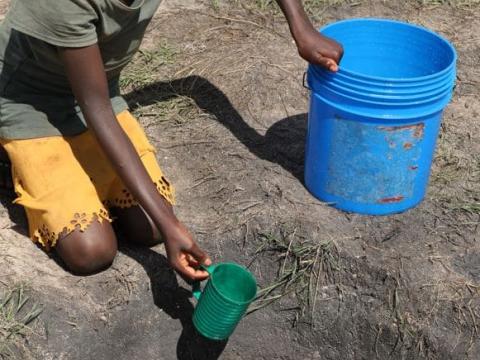12 Year Old Lizete Calls for Safe Drinking Water in Her Community

By António Massipa
According to Abujade Momade, the Permanent Secretary in Murrupula district, Nampula province, the Government of Mozambique has made significant progress towards achieving Sustainable Development Goal target 6.1. This goal aims to ensure universal and equitable access to safe and affordable drinking water. Currently, water coverage in that part of the country stands at 39%.
However, the need for safe drinking water remains high. More than half of the population in Murrupula district still rely on inadequate and often contaminated water sources. This situation has led to the spread of diseases such as cholera, diarrhea, dysentery, hepatitis A, typhoid, and polio (WHO, 2023).
In Murrupula, many families, like Lizete's family, struggle to access clean water. Some have to walk over 2km to reach safe water sources, such as boreholes and water supply systems. Others, despite traveling long distances, can only find unsuitable water from streams and small wells they dig themselves.
Lizete, a 12-year-old girl in grade six, lives with her parents and siblings. Her family collects water from small wells. They have to walk almost 1km from their home to a lowland area, where they dig holes and scoop water for drinking, cooking, and other household needs.
“This is where we collect water every day. We don’t have any other place to go and collect water. We know that this water is unsuitable for drinking, because we’ve had so many cases of diarrhoea and the hospital said it was related to the water we drink. But dirty water is all we have in my community. I wish we could have safe drinking water,” says Lizete.
In fact, diarrhoea cases are common in Murrupula, which is linked, inter alia, to contaminated water. While diarrhoea cases dropped, from 1563 in 2022 to 1272 in 2023 as a result of the government partnership with different partners, the rate is still a concern.
Safe and enough water is critical in Murrupula to facilitates the practice of hygiene, which is a key measure to prevent not only diarrhoeal diseases, but also acute respiratory infections and numerous neglected tropical diseases.